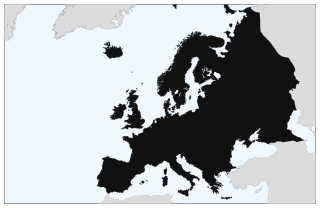 W
WThe culture of Europe is rooted in the art, architecture, film, different types of music, economics, literature, and philosophy that originated from the continent of Europe. European culture is largely rooted in what is often referred to as its "common cultural heritage".
 W
WThis is a list of notable mascots and characters created specifically for advertising purposes, listed alphabetically by the product they represent.
 W
WEgypt has had a legendary image in the Western world through the Greek and Hebrew traditions. Egypt was already ancient to outsiders, and the idea of Egypt has continued to be at least as influential in the history of ideas as the actual historical Egypt itself. All Egyptian culture was transmitted to Roman and post-Roman European culture through the lens of Hellenistic conceptions of it, until the decipherment of Egyptian hieroglyphics by Jean-François Champollion in the 1820s rendered Egyptian texts legible, finally enabling an understanding of Egypt as the Egyptians themselves understood it.
 W
WBorealism is a form of exoticism in which stereotypes are imposed on the Earth's northern regions and cultures.
 W
WCentral European Forum is an international venue organized by the non-profit organization Project Forum, held in Bratislava, Slovakia.
 W
WCitizens for Europe is a community of over 500 civil society organizations (CSOs) committed to a participative, diverse and democratic Europe. Since its founding in 2010, Citizens for Europe has been committed to strengthening civil society actors in their structures. The initiators of this network aim to use cooperation incentives to create synergies between CSOs, thereby strengthening civil society in Europe.
 W
WEuropean Union culture policies aim to address and promote the cultural dimension of European integration through relevant legislation and government funding. These policies support the development of cultural activity, education or research conducted by private companies, NGO's and individual initiatives based in the EU working in the fields of cinema and audiovisual, publishing, music and crafts.
 W
WCulture.pl is a large web portal devoted to Polish culture. It was founded by the Adam Mickiewicz Institute in March 2001. Written in Polish, English and Russian, the site promotes the work of Polish artists around the world and is a popular information database on all artistic aspects of Polish culture. Its ISSN number is 1734-0624.
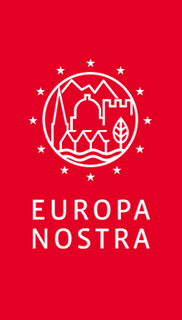 W
WEuropa Nostra is a pan-European Federation for Cultural Heritage, representing citizens' organisations that work on safeguarding Europe's cultural and natural heritage. It is the voice of this movement to relevant international bodies, in particular the European Union, the Council of Europe and UNESCO. It has consultative status with UNESCO and is recognised as an NGO partner.
 W
WEuropeade is the largest festival of European folk culture, held in a different European country each year. The last Europeade was held in Turku, Finland in 2017. The year before that it was held in Namur, Belgium in 2016.
 W
WEuropean Culture and Economy, shortened as ECUE, is an interdisciplinary postgraduate program that is distinct from European Studies. Both focus on European politics and developments. After receiving the academic degree Master of Arts, graduates of ECUE may engage in various business fields, however, especially EU-related professions are targeted.
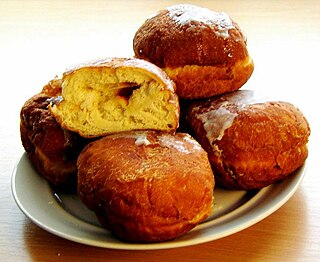 W
WFat Thursday is a traditional Christian feast marking the last Thursday before Lent and is associated with the celebration of Carnival. Because Lent is a time of fasting, the days leading up to Ash Wednesday provide the last opportunity for feasting until Easter. Traditionally it is a day dedicated to eating, when people meet in their homes or cafés with their friends and relatives and eat large quantities of sweets, cakes and other meals usually not eaten during Lent. Among the most popular all-national dishes served on that day are pączki in Poland or berliner, fist-sized donuts filled with rose hip jam, and angel wings (faworki), French dough fingers served with powdered sugar.
 W
WEuropean Heritage Days (EHD) is a joint action of the Council of Europe and the European Commission involving all 50 signatory states of the European Cultural Convention under the motto, Europe: a common heritage. The annual programme offers opportunities to visit buildings, monuments and sites, many of which are not normally accessible to the public. It aims to widen access and foster care for architectural and environmental heritage. These events are also known as Doors Open Days and Open Doors Days in English-speaking countries.
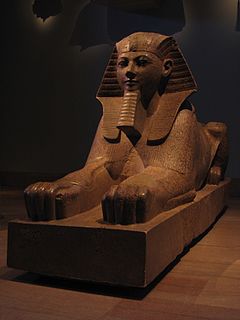 W
WAn honorary male or honorary man is a woman who is accorded the status of a man without disrupting the patriarchal status quo. Such a woman might be considered "one of the guys" by the men she associates with.
 W
WThe European Juggling Convention (EJC), is the largest juggling convention in the world, regularly attracting several thousand participants. It is held every year in a different European country. It is organised by changing local organisation committees which are supported by the European Juggling Association (EJA), a non-profit association founded in 1987 in Saintes, France. Like most juggling conventions, it features a mix of workshops for jugglers, a "renegade" performance performed for participants, games, performances and a public show, usually spread out over a period of a week in the European summer. Accommodation is usually in the form of tents provided by participants.
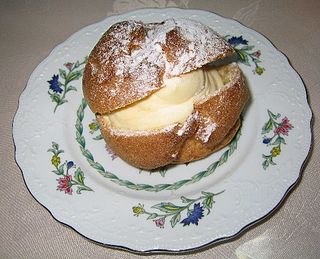 W
WLaskiainen is a celebration with Finnish origins, which includes both pagan and ecclesiastic traditions, and is often described as a "mid-winter sliding festival".
 W
WThe House of European History (HEH) is a museum in Brussels, Belgium focusing on the history of Europe. The permanent exhibition begins with the myth of the goddess Europa, delving into Europe's ancient roots and the continent's heritage of shared traditions and achievements, before continuing through Europe's dramatic journey towards modernity in the 19th century and the rebuilding process following World War II. The final section challenges visitors to critically assess European history, its potential and its future.
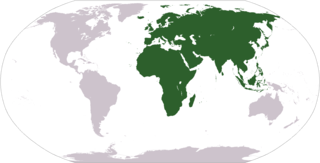 W
WThe "Old World" is a retronym used primarily by western civilizations to refer to Africa, Asia and Europe after Europeans made contact with the Americas, which they labeled the "New World". The Old World referred to that part of the world known to Europeans before encountering the Americas, and may also be called Afro-Eurasia or the World Island.
 W
WParis is the capital and most populous city of France, with an estimated population of 2,175,601 residents as of 2018, in an area of more than 105 square kilometres. Since the 17th century, Paris has been one of Europe's major centres of finance, diplomacy, commerce, fashion, science and arts. The City of Paris is the centre and seat of government of the Île-de-France, or Paris Region, which has an estimated official 2017 population of 12,174,880, or about 18 percent of the population of France. The Paris Region had a GDP of €709 billion in 2017. According to the Economist Intelligence Unit Worldwide Cost of Living Survey in 2018, Paris was the second most expensive city in the world, after Singapore, and ahead of Zürich, Hong Kong, Oslo and Geneva. Another source ranked Paris as most expensive, on a par with Singapore and Hong Kong, in 2018.
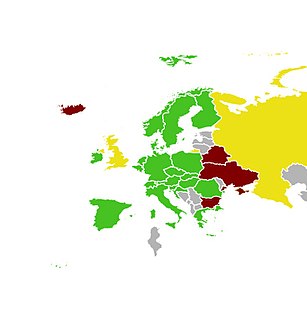 W
WPornography in Europe has been dominated by a few pan-European producers and distributors, the most notable of which is the Private Media Group that successfully claimed the position previously held by Color Climax Corporation in the early 1990s. Most European countries also have local pornography producers, from Portugal to Serbia, who face varying levels of competition with international producers. The legal status of pornography varies widely in Europe; its production and distribution are illegal in countries such as Ukraine, Belarus and Bulgaria, while Hungary is noted for having liberal pornography laws.
 W
WA salon is a gathering of people held by an inspiring host. During the gathering they amuse one another and increase their knowledge through conversation. These gatherings often consciously followed Horace's definition of the aims of poetry, "either to please or to educate". Salons in the tradition of the French literary and philosophical movements of the 17th and 18th centuries were carried on until as recently as the 1920s in urban settings.
 W
WTurquerie was the Orientalist fashion in Western Europe from the 16th to 18th centuries for imitating aspects of Turkish art and culture. Many different Western European countries were fascinated by the exotic and relatively unknown culture of Turkey, which was the center of the Ottoman Empire, and at the beginning of the period the only power to pose a serious military threat to Europe. The West had a growing interest in Turkish-made products and art, including music, visual arts, architecture, and sculptures. This fashionable phenomenon became more popular through trading routes and increased diplomatic relationships between the Ottomans and the European nations, exemplified by the Franco-Ottoman alliance in 1715. Ambassadors and traders often returned home with tales of exotic places and souvenirs of their adventures.